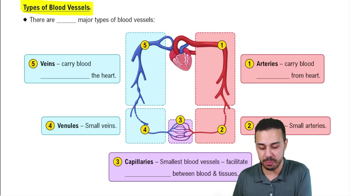Erythropoiesis requires stimulation from the hormone:
a. Thrombin
b. Thrombopoietin
c. Thymosin
d. Erythropoietin
 Verified step by step guidance
Verified step by step guidance Verified video answer for a similar problem:
Verified video answer for a similar problem:



 6:11m
6:11mMaster Functions of Blood with a bite sized video explanation from Bruce Bryan
Start learning